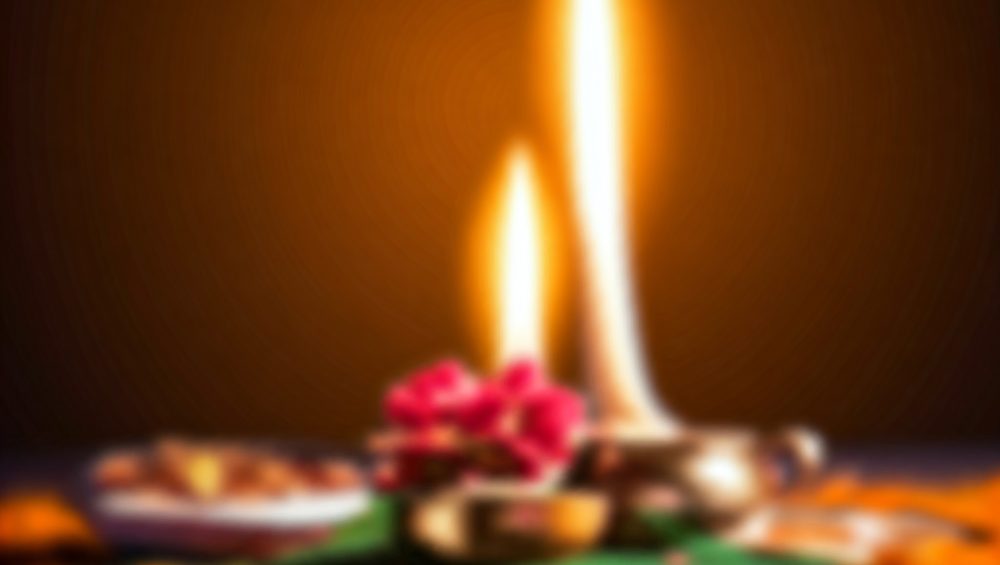Navratri is one of the biggest festivals celebrated among Hindus celebrated with lots of enthusiasm across the country. This festival is associated with Goddess Durga and her nine incarnations are worshipped on each day of the festival. Some people observe fast during Navratri. Fasting during Navratri usually includes deviating from day to day items like wheat flour, meat, onion, garlic, and much more.
A major part of fast includes whole wheat flour, here are some grains which you can consume instead of wheat,
- Buckwheat (Hindi: Kuttu)
Buckwheat is probably the most popular and extensively used cereal associated with Navratri Fasts. Buckwheat is a gluten-free cereal. Its nutritional profile is amazing – it’s got good quality proteins, phosphorus, magnesium, and fiber. Being gluten-free makes it light on the tummy and great for digestion.
- Water Chestnut (Hindi: Singhara)
Also called as buffalo nut or bat nut, singhara is a single seed of a floating aquatic plant. Water chestnut is a good source of antioxidants which can help in curing some chronic diseases. The Green and red variety of singhara have also shown antibacterial activity. Being rich in Potassium and low in Sodium, it is said to help with water retention too.
- Amarnath (Hindi: Rajgira)
Rajgira is commonly consumed in Gujrati households. Amaranth has the highest amount of protein amongst all other cereals. Amaranth is also a rich source of calcium and iron providing our body with two of the most essential nutrients. The fiber content of amaranth helps aid digestive health while lowering cholesterol and controlling blood pressure as well.
- Little Millet (Hindi: Samai)
Popularly eaten only during Navratri, samai has the highest fiber content amongst all the millets. Fiber is known to be protective against diabetes, cardiac diseases, and aids digestive health. Being rich in fiber, little millet is also rich in Iron and it can serve up to 16% of the daily requirement of Iron of an adult man. Being gluten-free, it is easier to digest
Tips to Fast in a healthy way-
Fasting during Navratri is not just related to religious reasons. There are some scientific reasons, which highlight the benefits of fasting. So, if you are planning to fast this Navratri, here are some healthy tips to follow.
- Don’t over-indulge in deep-fried snacks
Fasting for many people includes binge eating on deep-fried snacks like chips, wafers, etc. As fried foods are high in salt, they can totally negate your purpose of fasting. Consuming fast food in high amounts can lead to a risk of developing diseases like diabetes, heart diseases, and obesity. Whenever you’re hungry, instead of eating chips, grab a fruit or drink some milk, that might help in easing your hunger.
- Stay Hydrated
Staying hydrated when you fast is extremely important. Water, low-fat milk, and vegetable and fruit juices are some of the ways to stay hydrated and maintain an adequate level of body fluids and salt. When you are fasting, your diet entirely changes so it is important to stay hydrated when your body is adjusting with your new diet.
- Avoid Starving Yourself
The purpose of fasting is to not starve yourself at all. Include fiber-rich foods in your diet, add a lot of vegetables like potato, yam, sweet potato in your diet. These vegetables have a lot of starch which will keep your stomach full and also curbs your hunger.
- Get a Break from Sugar
We tend to eat extra sugar during Navratris. However, too much sugar can be harmful to your health. Refined sugar doesn’t have any nutritive value and is stored as empty calories. Navratri is the right time to take a break from refined sugar. Instead of refined sugar, add jaggery or honey to satisfy your cravings for sugar.





1 Comment
My husband and i felt now cheerful when Albert managed to finish up his researching by way of the precious recommendations he got from your own blog. It’s not at all simplistic to just choose to be giving out key points which usually other people may have been trying to sell. So we acknowledge we now have you to give thanks to for that. Those illustrations you’ve made, the easy blog navigation, the relationships you give support to instill – it’s all astounding, and it is aiding our son and the family know that this issue is pleasurable, and that’s especially mandatory. Thank you for the whole thing!